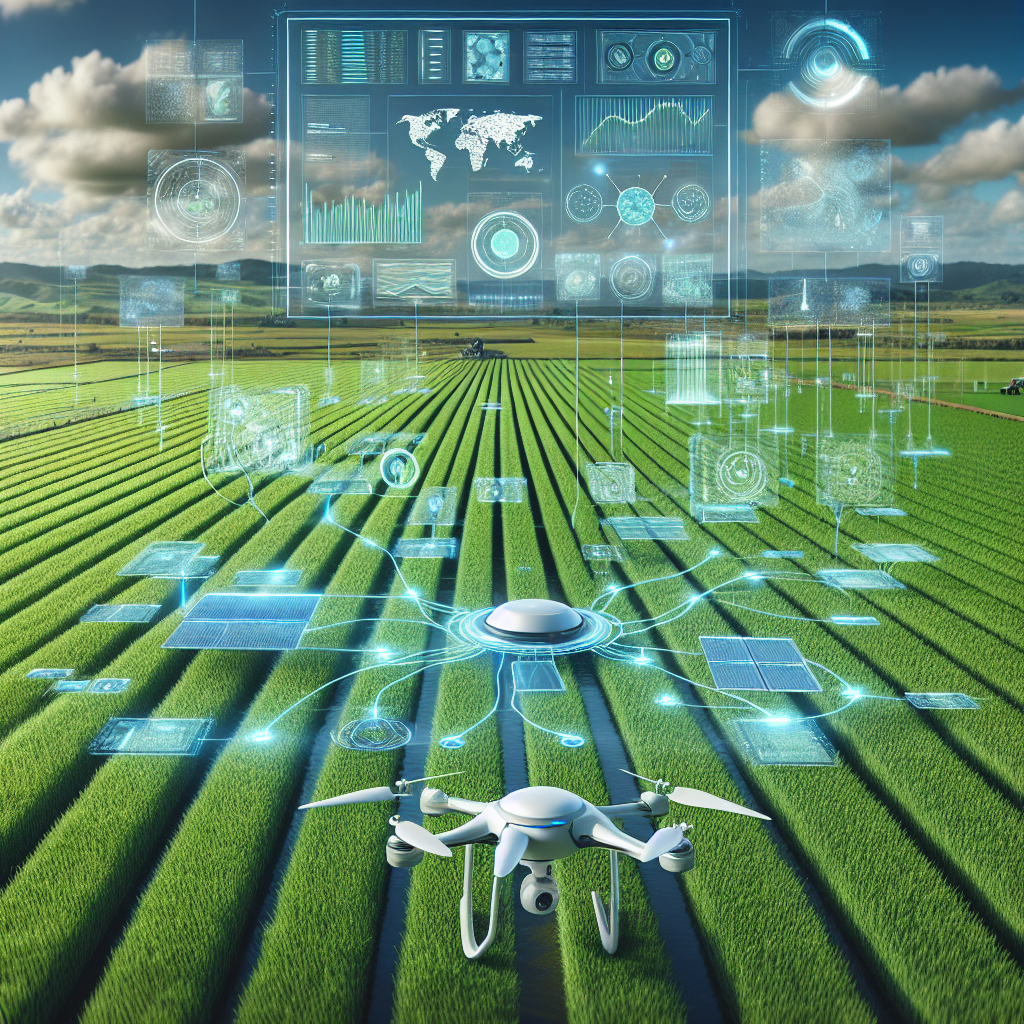The Role of AI in Enhancing Sustainable Agriculture Practices
Agriculture has always been at the heart of human civilization, providing the essential sustenance required for our survival. However, traditional farming practices have often come under criticism for their environmental impact, including deforestation, water scarcity, and the degradation of soil quality. In response to these challenges, the agricultural sector is increasingly turning to Artificial Intelligence (AI) as a tool to promote sustainability and ensure the long-term viability of farming practices. This article explores the transformative role of AI in enhancing sustainable agriculture practices.
Precision Agriculture
One of the most significant applications of AI in farming is precision agriculture. This approach uses AI algorithms to analyze data from satellite images, drones, and sensors on the ground to monitor crop health, soil conditions, and micro-climates. By providing precise, real-time information about the state of their fields, farmers can make informed decisions that reduce waste and increase crop yields. For instance, AI can predict the optimal time for planting and harvesting, the exact amount of water needed for irrigation, and the precise quantity and type of fertilizers or pesticides required, minimizing environmental impact.
Pest Control and Disease Prediction
AI-powered solutions are increasingly used for pest control and disease prediction, offering a sustainable alternative to the widespread use of chemicals in agriculture. Machine learning models can identify pest invasions or disease outbreaks before they spread widely, allowing for targeted interventions that are less harmful to the environment and non-target species. For example, AI systems can analyze images captured by drones or cameras to detect the early signs of plant disease, enabling farmers to apply treatments only where needed.
Crop and Soil Monitoring
AI technologies play a crucial role in monitoring the health of crops and the condition of soil. Through advanced algorithms, AI can analyze data collected from various sources to provide actionable insights on soil moisture levels, nutrient content, and other critical parameters. This information helps farmers adopt sustainable practices such as crop rotation, cover cropping, and reduced tillage, which enhance soil health and biodiversity while reducing erosion and chemical runoff.
Yield Prediction and Supply Chain Optimization
AI models are adept at predicting agricultural yields, which can help in planning and optimizing the supply chain. By accurately forecasting production levels, AI enables better inventory management, reduces food waste, and ensures that crops reach the market in the most efficient manner. Moreover, AI can optimize logistics and transportation routes, further reducing the carbon footprint of agricultural products.
Water Management
Water scarcity is a growing concern in many parts of the world, making the efficient use of water resources critical. AI can optimize irrigation systems, ensuring that crops receive the right amount of water at the right time. This not only conserves water but also prevents problems such as waterlogging and soil salination, which can degrade farmland over time.
Enhancing Biodiversity
AI can also contribute to enhancing biodiversity in agricultural landscapes. By analyzing large datasets, AI can help in designing farming practices that support a wide range of species. For instance, AI can assist in planning where to plant hedgerows and create buffer zones that protect natural habitats and promote beneficial insects and wildlife, contributing to ecological balance.
Challenges and Future Directions
While AI holds immense potential for promoting sustainable agriculture, several challenges remain. These include the high cost of AI technologies, which can be prohibitive for small-scale farmers, and concerns about data privacy and security. Additionally, there is a need for more research to fully understand the long-term impacts of AI on agricultural ecosystems.
Looking ahead, the future of AI in sustainable agriculture looks promising. Advances in AI technology, coupled with a growing emphasis on environmental sustainability, are likely to lead to more innovative solutions that address the complex challenges facing the agricultural sector. As AI becomes more accessible and affordable, it has the potential to revolutionize farming practices worldwide, making agriculture more sustainable for future generations.
FAQs
Q1: How does AI contribute to reducing the use of water in agriculture?
A1: AI optimizes irrigation systems by using data to precisely determine the water needs of crops, thus conserving water and preventing wastage.
Q2: Can AI replace traditional farming methods?
A2: AI is not meant to replace traditional farming methods but to complement and enhance them, making farming practices more efficient and sustainable.
Q3: Is AI in agriculture expensive?
A3: The cost of implementing AI in agriculture can be high, but as technology advances and becomes more widespread, it is expected to become more affordable.
Q4: How does AI help in pest control?
A4: AI uses data from images and sensors to detect pest invasions or disease outbreaks early, allowing for targeted interventions that minimize environmental impact.
Q5: What is precision agriculture?
A5: Precision agriculture is an approach that uses AI and other technologies to monitor and manage the agricultural production process, ensuring that resources are used efficiently to increase crop yields and reduce environmental impact.
As AI continues to evolve, its integration into agriculture promises to usher in a new era of sustainability, ensuring that we can meet the food needs of a growing global population without compromising the health of our planet.

